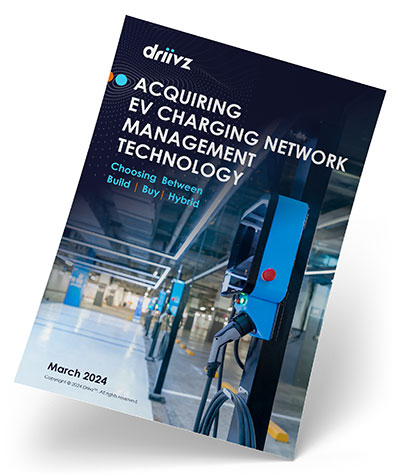A payment gateway allows eMobility service providers to accept credit cards and other alternative payment methods. It enables the authorization and transfer of funds between the electric vehicle driver and the EV charging provider.
Payment service providers (PSPs) facilitate payment transactions by transferring information between the eMobility service provider and the electric vehicle drivers, via a mobile app, web portal, or point-of-sale (POS) contactless devices.
Payment gateway communications, which are all automated, secured, and occur within a few seconds of initiation, work as follows:
- The EV driver initiates the charging session.
- The authorization request is passed through the eMobility provider’s back-end operations platform, where it is submitted to the payment gateway.
- The payment gateway sends the request to the payment processor, who forwards the request to the customer’s financial institution to receive authorization.
- Authorization is sent back to the operations platform, which allows charging to begin; this is called fulfillment.
- Upon completion of the transaction, communications are initiated to receive the payment.
Payment gateways are not all the same. They vary by:
- Fees
- Minimum payment volume
- Geolocation
- Currencies
- Communications latency
- Allowed payment methods
- Conversion rates
Popular payment gateways include Braintree, Stripe, Adyen, Elavon, and Square.

Why should EV charging providers care about EV charging management system which supports multiple gateways?
Payment gateways are not one size fits all. If your EV charging management platform only supports one gateway, it significantly limits your freedom of choice. Integration with only a single payment gateway can actually affect growth, as it prevents the acceptance of certain types of credit cards, currencies, etc.
Therefore, EV charging service providers need to ensure their EV charging management platform allows them to choose from a variety of payment gateways.
This allows them to:
- Bargain for better fees, as they are not tied to only one payment service provider.
- Choose a payment service provider that suits not only their current needs but also the future needs they might have in order to expand.
- Continue with a PSP they are already working with. Therefore, they will not need to go through the entire validation process, including ‘Know-your-client’ (KYC) and other required processes.




